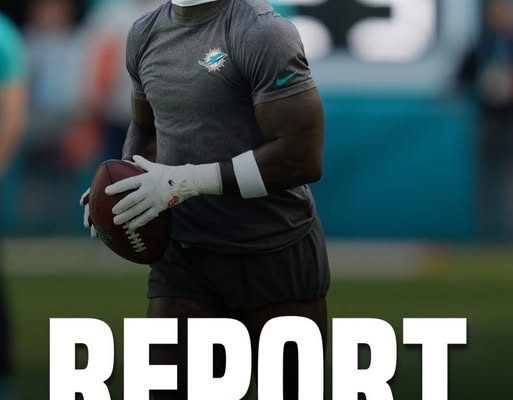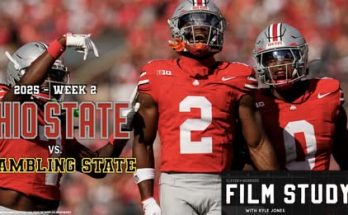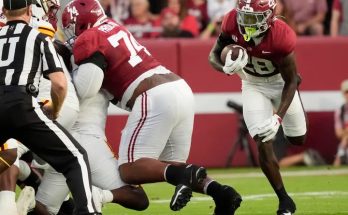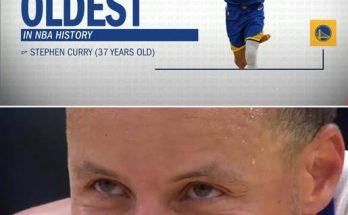The NFL finds itself once again in the spotlight for off-field issues, this time involving one of its brightest stars, Miami Dolphins wide receiver Tyreek Hill. Reports surfaced that the league is formally investigating Hill following serious allegations made by his estranged wife, Keeta Vaccaro, in the midst of their ongoing divorce proceedings. According to a new court filing first reported by TMZ, Vaccaro has alleged that Hill was involved in eight separate incidents of domestic violence during their 17-month marriage, a revelation that has quickly sent shockwaves through the football world and reignited debates about how the league handles cases of alleged misconduct by its players. The news is not only significant because of Hill’s stature in the NFL but also because of the broader context in which these allegations are being made. The league has struggled for decades with balancing player discipline, due process, and public perception when allegations of domestic violence surface. While the NFL instituted a personal conduct policy that is supposed to hold players accountable regardless of the legal outcome of criminal or civil proceedings, each case tends to unfold in its own unique and controversial way, often drawing criticism from different sides of the debate.
Tyreek Hill’s case is particularly sensitive because of both his history and his prominence. Hill is widely regarded as one of the most electrifying players in football, a multiple-time Pro Bowl wide receiver who played a key role in the Kansas City Chiefs’ rise before being traded to Miami, where he has continued to dominate and shatter records. However, his career has also been accompanied by off-field controversies, including prior allegations of domestic violence that date back to his time in college at Oklahoma State, when he was dismissed from the team after an incident involving his then-girlfriend. Years later, while with the Chiefs, he was investigated for possible child abuse allegations, though he ultimately avoided criminal charges. These past issues loom large as the NFL and the public examine the new claims being brought forward by Vaccaro.
Vaccaro’s court filing paints a troubling picture of her marriage to Hill, alleging eight separate incidents in which she claims she was subjected to physical violence, emotional abuse, and other forms of mistreatment. While the full details of each alleged incident have not been made public in depth, the fact that the filing outlines a pattern over 17 months suggests that she is attempting to show the court that this was not an isolated occurrence but rather a recurring problem. Such claims, if substantiated, could place enormous pressure on both Hill’s career and the Miami Dolphins organization, which has invested heavily in him as the centerpiece of their offense.
For the NFL, the question becomes how to handle this situation in a manner that satisfies multiple stakeholders—fans, players, advocacy groups, and the media. On one hand, there is an expectation that the league act swiftly and firmly to condemn and punish any form of domestic violence. On the other hand, Hill has not been charged with a crime, and the allegations are emerging in the context of a contentious divorce, which raises questions about credibility, motive, and fairness. The league must balance due process with its desire to project a zero-tolerance stance on domestic violence, a balance that has historically proven difficult to strike. The NFL’s personal conduct policy gives Commissioner Roger Goodell wide latitude to place players on the Commissioner’s Exempt List, a form of paid leave, while an investigation is ongoing. This allows the league to remove a player from the field without presuming guilt but also prevents the team from continuing as if nothing has happened. Whether Hill will be placed on this list as the investigation proceeds remains a looming question, especially as the regular season marches on and Miami’s games continue to draw national attention.
The Dolphins themselves are in an awkward position. As an organization, they will be expected to show leadership and sensitivity to the gravity of the allegations while also protecting their competitive interests. Hill is the focal point of their offense, the receiver who stretches defenses and enables quarterback Tua Tagovailoa to flourish. Losing him for any significant length of time would drastically alter their season. Yet, public relations and long-term brand concerns often weigh as heavily as on-field performance in moments like this. Teams that appear to minimize or downplay serious allegations often suffer backlash from fans, sponsors, and media. Dolphins leadership will likely await guidance from the league before making any firm moves, but the spotlight on their decision-making will only intensify as this story develops.
The situation also underscores the ongoing challenge for the NFL in building trust with the public when it comes to domestic violence. Ever since the Ray Rice case in 2014, when the league was widely criticized for initially suspending Rice only two games despite video evidence of him punching his fiancée, the NFL has tried to craft a policy that signals seriousness. Yet, critics argue that enforcement is often inconsistent, opaque, and subject to the league’s business interests. Some players have been suspended swiftly after allegations, while others have remained on the field for long periods while cases drag on. This inconsistency feeds the perception that star players sometimes receive more lenient treatment, particularly when their absence would significantly impact ratings and team performance. Tyreek Hill, being one of the most recognizable and marketable players in the league, puts this dynamic to the test once more.
For Hill personally, the implications are enormous. Even if the allegations do not result in criminal charges, the mere existence of an NFL investigation and the public airing of alleged violent incidents can tarnish a player’s reputation for years. Endorsement deals, community relationships, and legacy all hang in the balance. Hill has always been a polarizing figure, with fans awed by his speed and playmaking while critics question his past behavior and the league’s willingness to overlook it. These new allegations could cement a narrative that has shadowed him throughout his career, one that frames him as a player whose off-field life continues to stir as much controversy as his on-field brilliance garners praise.
From Keeta Vaccaro’s perspective, bringing these allegations into the public and legal sphere is both risky and courageous. Divorce proceedings often expose deeply personal matters, and high-profile athletes’ spouses are not immune to scrutiny, criticism, or doubt. By filing court documents alleging repeated domestic violence, Vaccaro has taken a step that ensures the matter cannot be quietly settled or ignored. It guarantees attention from the public and the league, but it also invites the kind of pushback that accusers in these cases often face, particularly when they involve celebrities. Advocates for survivors of domestic violence will be watching closely, concerned that her voice be taken seriously and not drowned out by the noise of sports fandom and legal maneuvering.
As the NFL investigation unfolds, much will depend on the evidence available, including any documentation, testimony, or corroborating accounts that support Vaccaro’s claims. The league employs former law enforcement officials and specialists to look into these cases, and their findings often remain confidential until a disciplinary decision is announced. This secrecy has drawn criticism for its lack of transparency, but it also reflects the sensitivity and legal complexity of such investigations. Meanwhile, the media will continue to speculate, and fans will debate, creating an environment in which perception often hardens long before official conclusions are reached.
The broader cultural significance of this case cannot be ignored. Domestic violence remains a major issue in society at large, and the actions of public figures like NFL players can either reinforce or challenge societal attitudes. When a superstar like Tyreek Hill is accused of repeated abuse, it forces uncomfortable conversations about hero worship, accountability, and the willingness of fans to overlook off-field behavior in the name of team success. It also highlights the role of institutions like the NFL in shaping norms. By how they respond, leagues can either contribute to a culture of accountability or perpetuate a culture of impunity.
The coming weeks and months will be crucial in determining how this story develops. The NFL will need to complete its investigation, the Dolphins will have to manage the practical and public relations fallout, and Hill himself will likely have to make public statements addressing the matter. Meanwhile, Vaccaro’s legal team will continue to press her claims in court, ensuring that this is not simply a sports story but also a legal and societal one. The stakes are enormous for everyone involved, and the ultimate outcome remains uncertain.
In the end, what is at stake is larger than just one player or one team. It is about how the NFL, as one of the most powerful institutions in American sports, responds when faced with allegations that touch on issues of violence, accountability, and justice. It is about whether the league can reconcile its desire to protect its image with its responsibility to address serious social problems. And it is about the willingness of fans, media, and communities to demand better from the athletes they cheer for and the organizations they support. Tyreek Hill’s extraordinary talent has made him one of the defining figures of his generation on the field, but it is the decisions made off the field, both by him and by those around him, that may ultimately define how his legacy is remembered.



